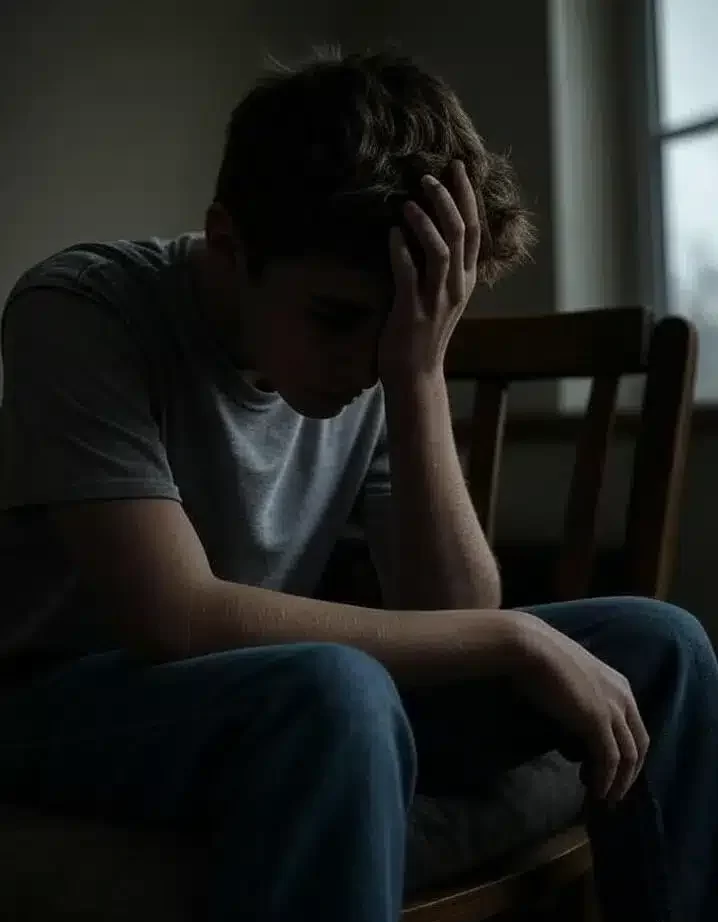- Home
- Sexual Abuse
- Signs of Sexual Abuse
Signs of Sexual Abuse
- October 22, 2025
-
Sarah Miller
- Fact Checked By Our Attorneys
Recognizing the signs of sexual abuse is critical, especially because many survivors, particularly children, cannot always speak up for themselves. The signs may be subtle, but noticing them early can protect victims from further harm and open the door to safety and justice. Behavioral changes, emotional struggles, and physical signs can all point to abuse, yet families and caregivers often overlook them.
If you suspect child sexual abuse or believe someone you love has been sexually abused, understanding the warning signs is the first step. You can take the next step today with a free, confidential case review through our Sexual Abuse hub.
No Win, No Fee. Let the Best Sex Abuse Attorneys Fight for your Compensation!
Key Takeaways:
Physical warning signs may include genital injuries, pain, or sexually transmitted infections.
- Emotional and behavioral changes like depression, nightmares, self harm, or fear of a certain person often reflect trauma.
- Silence is common due to fear, shame, or manipulation, making it important for parents and caregivers to stay alert.
- Legal support is available. Free, confidential case reviews can connect survivors and families with experienced sexual abuse attorneys.
Find out your eligibility in 2 minutes
If you or your child has been sexually abused, please know you are not alone. Many survivors and families are facing the same pain and searching for justice. Our team can connect you with an experienced sexual abuse attorney who will listen, protect your rights, and guide you through filing a legal claim for the compensation you may be entitled to.
Begin your free, confidential case review today.

What Are the Physical Signs of Sexual Abuse?
The signs of sexual abuse can appear in many forms, and they are not always obvious. A person who has experienced sexual abuse may show behavioral signs such as sudden withdrawal from friends, self harm, loss of interest in school activities, or a decline in education and school performance.
Some children and teenagers may become fearful of certain people, avoid physical contact, or struggle with unexplained changes in eating habits and sleeping patterns. Symptoms like Depression, anxiety, suicidal ideation, or frequent nightmares can point to deep trauma.
There are also physical signs that may suggest abuse. These can include injuries to the genital or anal area, difficulty sitting or walking, or the presence of a sexually transmitted disease. Sometimes there may be physical evidence of sexual acts such as inappropriate touching or oral sex. No single behavior proves that a child has been sexually abused, but patterns of changes across emotional, physical, and behavioral signs should raise concern.
“No single behavior proves that a child has been sexually abused, but when emotional, physical, and behavioral changes appear together, it should raise concern.”
Signs of Child Sexual Abuse
Recognizing the signs of child sexual abuse in children and young people is especially important, because most children are not able to explain what has happened to them. A child who has been sexually abused may regress in their development. This can include bed wetting, thumb sucking, or acting younger than their age level.
Children may also develop sudden fears of specific people or places, which could point to contact with an abuser. Some begin to display sexual behavior or knowledge of human sexuality that is far beyond what is normal for their age.
Physical signs may appear as well. These include injuries in the genital area, repeated urinary infections, unexplained pain, or difficulty with normal movement such as walking or sitting. In some cases, sexually transferred diseases can also be a warning sign.
Emotional symptoms may be just as telling. A child might show depression, anxiety, or changes in eating habits. They may become unusually quiet, develop nightmares, or show anger toward family members or other children.
Because children often feel shame or fear, they may not directly report sexual abuse. That is why adults must remain alert and take sudden changes seriously. Paying attention to these signs can keep children safe and may also prevent other forms of abuse or neglect from continuing. If you suspect abuse, you can learn more about child sexual abuse, daycare abuse, or sexual abuse in schools, and explore ways to support a child through legal action and professional care.
No Win, No Fee. Let the Best Sex Abuse Attorneys Fight for your Compensation!
Signs of Sexual Abuse in Teenagers
Teenagers who have experienced sexual abuse often show different warning signs than younger children. Because they are at a stage of developing independence and personal identity, the effects of abuse may appear in changes to mood, secrecy, and risky behavior. A young person might suddenly withdraw from friends and family, avoid trusted adults, or refuse to talk about what is troubling them.
They may show behavioral signs such as experimenting with drugs or alcohol, skipping school, or engaging in unsafe sexual behavior. Declining school performance, loss of interest in activities they once enjoyed, or difficulty trusting others can also signal trauma connected to sexual assault.
Some victims may show signs of depression, anxiety, or self harm, while others attempt to hide their feelings with anger or defiance. Teenagers may also become fearful of a certain person, avoid physical contact, or express shame about their body. Because many young people stay silent out of fear or confusion, it is essential for parents, family members, and friends to pay close attention to sudden changes in behavior that continue over a long period.
If these signs raise concern, support is available. Survivors and their families can learn more about boarding school abuse, university sexual abuse, or youth sports sex abuse, which are common settings where abuse may occur. Recognizing the problem early allows teenagers to get the help and legal support they need to begin healing.

Physical and Emotional Signs
Physical signs can be easier to notice, although they are not always present. These may include unexplained injuries in the genital or anal area, difficulty sitting or walking, or sudden pain without a clear cause. A sexually transmitted disease in a child or teenager is one of the strongest indicators of sexual contact and should always be taken seriously.
Other forms of physical abuse may appear as bruises, cuts, or discomfort that a child cannot explain. These warning signs are particularly concerning when combined with changes in a young person’s behavior.
Emotional signs often reveal the deep trauma caused by sexual acts and sexual exploitation. Victims may suffer from depression, frequent nightmares, anxiety, or low self-esteem. Some show self harm, suicidal thoughts, or extreme fear of being around certain people.
Others may suddenly act younger than their age, lose trust in family or friends, or show sexual behavior far beyond their developmental level. These symptoms can interfere with a child’s ability to function at home, in school, and in relationships with other children and adults.
Recognizing these physical symptoms is critical for keeping children and young people safe. Even if a victim does not directly report sexual abuse, consistent patterns of behavioral signs should lead parents and caregivers to take action. To better understand how abuse and exploitation can affect victims, visit our detailed page on sexual exploitation and abuse.
FREE!
Find out if you're eligible and may be eligible for compensation.
Get your Free Case Review and Maximize You Payout With the Help From Legal Claim Assistant.
Why Children and Teens Often Stay Silent
Many children and teenagers who experience sexual abuse do not immediately report what happened to them. Fear is one of the most powerful reasons. A child may worry about the abuser’s threats, feel ashamed of what occurred, or believe that parents and other adults will not believe them. Some victims feel responsible for the abuse, even though they are never at fault. Others may stay silent because the abuser is a person they know and trust, which makes the situation even more confusing.
Cultural and institutional pressures also play a role in keeping kids quiet. In cases of clergy sexual abuse, survivors are often taught to remain loyal to the church and may fear punishment for speaking out. Similarly, children in foster care abuse situations or those living in juvenile detention abuse facilities may feel trapped and powerless. Loyalty to family members, fear of breaking up the household, or the belief that they caused the abuse can all prevent a young person from disclosing what they endured.
These barriers to disclosure are why it is important for parents, teachers, and caregivers to watch for behavioral and physical signs, even when a child does not openly talk about what is happening. Creating a safe, supportive space where kids feel heard and believed can be the first step in helping them break their silence.
“Fear, shame, and loyalty often keep children silent, even though they are never at fault for the abuse they endured.”
How to Respond if You Suspect Sexual Abuse
If you believe a child or teenager may have been sexually abused, your response can make a major difference. The first step is to stay calm and listen. Survivors need to feel that they are believed and supported, not judged or interrogated. Avoid asking leading questions or pressing the child to provide details, as this can cause additional trauma. Instead, gently encourage openness and let them know it is safe to talk.
It is also important to document behaviors or physical signs that raise concern. Keeping notes about sudden changes in mood, sexual behavior beyond the child’s age, or unexplained injuries in the genital area can provide valuable information for professionals.
Seek immediate help from doctors, counselors, or child protection services if you notice evidence of abuse. If you believe a crime such as rape or sexual assault has occurred, contact the police so the case can be investigated properly.
Families should also explore legal guidance. Speaking with a sexual abuse attorney can help you understand your rights and options for protecting the victim. In some situations, filing a sexual abuse lawsuit may be the next step toward justice.
Why Recognizing the Signs Matters in Legal Cases
Recognizing the signs of sexual abuse is not only important for protecting children in the moment, it can also play a critical role in holding abusers accountable. Early detection often prevents further abuse, especially those cases where a young person is at risk of repeated sexual touching or exploitation. Patterns of behavior, such as sudden changes in mood, fear of a certain person, or sexual behaviour beyond a child’s developmental level, may provide important evidence that supports civil lawsuits.
Families sometimes worry that they do not have enough proof to move forward. It is important to understand that survivors do not need perfect proof to start legal action. Even consistent observations, documented examples of unusual behavior, or medical findings can help attorneys build a strong case. This is particularly true in institutional settings where multiple victims may have experienced abuse from the same person.
When these cases move forward, the evidence collected can be used to expose larger patterns of abuse such as fondling, grooming, groping, rape, sexual assault, or sexual battery. Identifying these warning signs and taking action not only protects the child involved but also creates a pathway to justice for other victims who may be suffering in silence.
How Legal Claim Assistant Can Help
If you or a family member suspects that a child has been sexually abused, Legal Claim Assistant is here to provide compassionate support and trusted legal guidance. We offer confidential case reviews where you can share your concerns without judgment. Our role is to connect survivors and families with attorneys who specialize in child abuse and institutional abuse cases, including those involving schools, churches, foster care, detention facilities, and youth organizations.
These attorneys understand the unique challenges of proving abuse, especially those cases where the abuser used manipulation, fear, or authority to silence victims. They know how to gather evidence, work with medical professionals, and present patterns of behavior in a way that strengthens a claim. Survivors may be eligible for compensation that can cover therapy, medical costs, and other long-term support needed for healing.
Taking the first step may feel overwhelming, but you do not have to face it alone. If you notice signs of sexual abuse, take action today and get a free and confidential case review.
You Deserve Justice. Let Us Help.
Speak with a trusted sexual abuse attorney who will stand by your side, protect your privacy, and fight for the compensation you deserve.
No Win, No Fee. Let the Best Sex Abuse Attorneys Fight for your Compensation!
Under 1 Minute
100% Free
Expert-Reviewed
Private & Secure
© 2025 Legal Claim Assistant. All Rights Reserved.
Terms of Service | Privacy Policy | Contact Us | Marketing Partners
Related Article

Can You Claim Whiplash After A Motor Vehicle Accident

